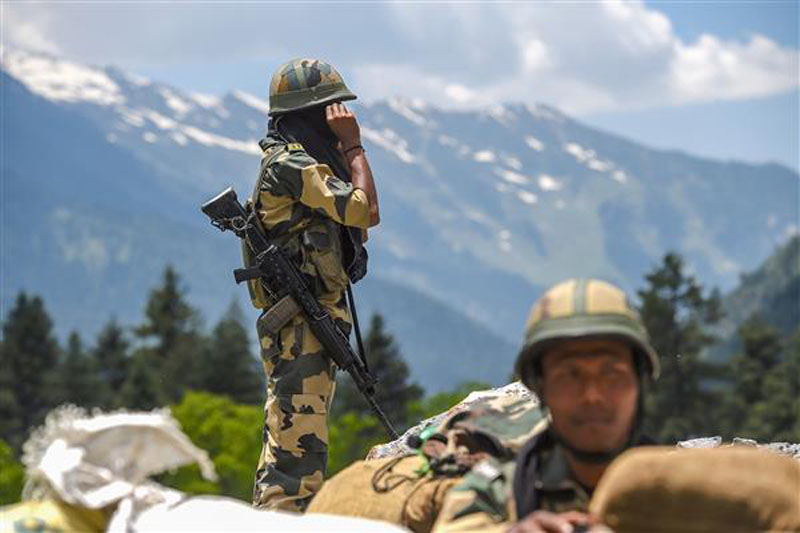
(TibetanReview.net, Nov07’20) – Prospects of a full-scale war are low, but border tensions and intrusions escalating into a larger conflict cannot be ruled out, timesofindia.com Nov 6 cited India’s chief of defence staff, General Bipin Rawat, as saying, speaking about the prolonged Ladakh standoff with a belligerently expansionist China.
The danger arises from the fact that China remains determined to shift the Line of Actual Control westwards in eastern Ladakh and India is adamant that this will not be allowed to happen.
“Our posturing is unambiguous – status quo has to be restored,” Gen Rawat was quoted as saying, even as India and China held the eight-round of military talks to defuse the almost seven-month-long tense military confrontation in the high-altitude region on Nov 6.
“In the overall security calculus, a full-scale conflict with China is low on probability. However, border confrontations, transgressions and unprovoked tactical military actions spiralling into a larger conflict cannot be discounted,” the General was quoted as saying, speaking at a webinar.
He has stressed that India will not allow “any shifting” of the LAC by China, which he has said was now facing “unanticipated consequences of its misadventure” due to the firm and strong response by the Indian forces in eastern Ladakh.
The report also cited the India Air Force Chief (IAF), Air Chief Marshal R K S Bhadauria, as emphasizing that his country’s “proactive actions and strong posture” were instrumental in dissuading China from making “any further attempts to alter the status quo” in Ladakh.
The swift deployment of IAF’s “offensive capabilities” reflected the nation’s resolve to use airpower if the need arises, he has added.
During the most recently held military talks, India was reported to have stuck to its stand of “complete de-escalation” at troop face-off sites as well as along the entire frontier in eastern Ladakh, rejecting the “piecemeal and one-sided disengagement steps” being proposed by China.
“The persisting boundary dispute, China’s support to Pakistan, its increasing influence in South Asia through BRI projects and unbalanced economic relationship is likely to ensure that in the near future, the Sino-India relationship will remain a fundamentally competitive one,” Gen Rawat was quoted as saying.






